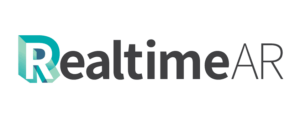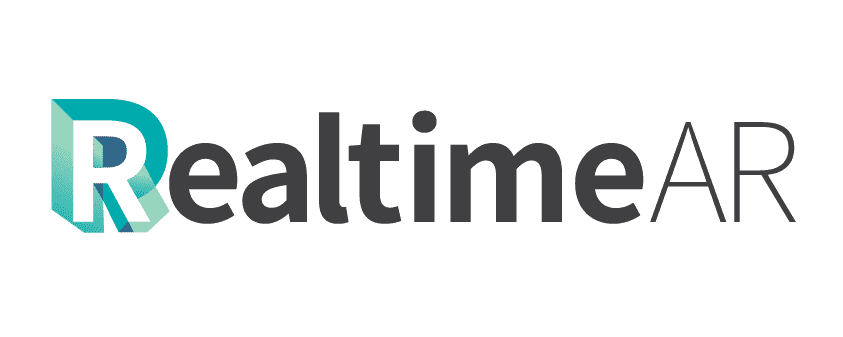SMART GLASSES; CLINICAL PROCEDURES & PATIENTS WAITING TIME


Smart glasses in wearable technology are metaphoric and revolutionary in every field. Their usage in the medical field has notably overcome the most crucial challenges faced by the healthcare industry with a breeze. The advanced features of medical smart glasses and their application can expedite clinical procedures, reduce patients’ waiting time, and bring many other advantages for healthcare professionals, managers, and patients.
Using these advanced smart glasses can now broaden the extent of the services it offers!
Medical Smart Glasses- A Revolutionary Technology For Efficient Healthcare
Medical smart glasses are AR/XR-based eyewear technology glasses with high-resolution imaging and wireless connectivity features. These glasses are also equipped with a built-in screen, voice recognition, and bluetooth technology. Advanced ones also follow voice commands for hands-free operations. These devices are specifically designed to help healthcare professionals, improve patient care and knowledge.
Although advancing wearable technology has helped in every sector of life, the use of medical smart glasses has influenced the lives of millions around the world! Click here to explore how AR/ XR technology is helping the healthcare industry.
Challenges Of The Medical Industry
The medical industry faces many challenges typically and on a day-to-day basis.
The typical challenges include problems with interoperability among different healthcare systems, invoicing and payment processing, data protection, and implementation of new technology.
Challenges that arise on a day-to-day basis are highly risky, often a matter of life and death, and require quick solutions.
Here are some of the most crucial medical industry challenges:
- Accessibility to clinical experts during procedures is vital. Experts bring experience and knowledge, without which a patient under procedure may face lifelong health problems or loss of life. Bridging the gap will allow clinical experts to help patients around the world.
- Accessibility to physicians for routine illnesses and emergency services is another major challenge. Patients have to wait for weeks or even months for routine checkups, which impact their health and the outcomes of the diseases.
- Clinical history and patient records possess a significant influence on deciding treatment regimes. Uncentralized or missing information will impact the treatment outcomes.
- Invoicing, the medical billing process, insurance claims, and transparency mandates halt the way of getting adequate health care and create problems for patients and hospital settings.
Accelerating Clinical Processes with Smart Medical Glasses
Smart medical glasses are helpful in a variety of clinical situations and processes.
Increase Accessibility To Clinical Professionals
Smart glasses for the medical industry empower clinical procedures with technology. During medical procedures or at critical times in medical settings, these wearable technology devices link on-site healthcare professionals with clinical experts far away.
Clinical experts provide valuable advice with their experience and expertise and help healthcare professionals in delivering quality healthcare services.
Allow Remote Services Effectively
Smart goggles increase the scope of services beyond the clinical settings and are extremely efficient in situations requiring complex care immediately. They are also a helpful tool for nurses who go for home visits, staff in ambulances, and physicians stuck in remote places and similar emergencies.
Offer Surgeon Eye View
Wearable technology-based smart glasses are gaining a reputation during surgeries. Surgeons use them to get an in-depth view of the surgery site, and it also allows them to share surgeon’s eye view grade high-resolution images with fellow surgeons. Furthermore, voice-enabled glasses build real-time two-way communication so surgeons can communicate, enhancing the efficiency of clinical procedures.
Research involving hundreds of clinical settings has been conducted to see the scope of help smart glasses have to offer in the medical sector. Clinical studies suggest that using smart medical goggles eliminates the limitations of time and distance, increasing accessibility to clinical experts and better healthcare facilities. Research Gate mentions many useful applications of smart glasses in many clinical settings and describes them as an adjunct to the current health information technology infrastructure.
Cutting Patient Waiting Time And Delays
Smart medical glasses are extremely helpful and handy in cutting down patient waiting time and delays in receiving medical help. Here are different scenarios where smart glasses are helping patients.
Remote Consultations
Remote consultations with experts possess a wide array of benefits for patients and consultants, too. Patients can benefit from the clinical expertise of medical professionals from anywhere in the world.
This facility is extremely useful for emergencies or mass casualty incidents, where healthcare professionals can use the devices to assess and prescribe treatment from a distance. It also helps in keeping healthcare professionals safe while fulfilling their duty.
Telemedicine Advancement
Smart medical glasses have played a pivotal role in advancing telemedicine. Telemedicine enables healthcare providers to conduct online consultations and provide prescriptions efficiently. They have efficiently cut down the need for visiting physicians for routine checkups or consultations. This saves a lot of time for patients and resources.
Improved Diagnostics
Smart glasses have empowered diagnostics in many ways. Firstly, capturing real-time high-resolution images and the facility to share them with colleagues allows healthcare professionals to communicate and assess diagnoses expertly. Secondly, the availability of detailed medical information also helps clinicians with diagnosis and deciding treatment regime.
Improved diagnostics has overall positive effect on healthcare outcomes.
Prehospital Care
Technology enabled smart glasses for medical settings help in expediting patient care by supporting work practices of prehospital service providers. Hand-free accessibility to information, remote consultation with experts hasten decision-making process and provide adequate care quickly.
Posthospital Care
Rehospitalization and complications after clinical procedures arise due to lack of adequate care. Using smart glasses increases accessibility to healthcare facility while reducing the need to visit hospital settings and keep patients motivated to take care of themselves. Hence, smart medical glasses increase accessibility to posthospital care and reduces waiting time.
Enhanced Workflow
Smart medical glasses support seamless workflow. Availability of entire information, including signs and symptoms, diagnostic test reports, treatment plans, and procedure details in a centralised system, is crucial to maintaining seamless operations in medical settings. This feature greatly reduces delays in providing efficient healthcare services.
Expediting the clinical procedures and patients’ waiting time was one of the most limiting factors reducing the efficacy of the healthcare system. Smart medical glasses have significantly overcome these challenges. But these aren’t the only benefits of using these technologically advanced glasses.
Let’s explore the extent of how smart medical glasses are benefiting the healthcare system.
Other Benefits Of Smart Medical Glasses In Healthcare
Other benefits of smart medical glasses include:
1. Remote Training And Education
Technology-enabled smart glasses offer advanced training and education facilities by simulating situations. They give students a chance to deepen their understanding and achieve a real-life experience. Using smart goggles, students can learn from top-class professionals from anywhere in the world.
2. Maintaining Patient’s Records
Voice and video-equipped smart glasses are backed with data storage capabilities where healthcare professionals can directly store patients’ data. This data is available for use within a healthcare system or shared among healthcare systems if allowed. Smart glasses maintain patient records organized in one place for future usage.
3. Hands-Free Documentation
Manual data recording takes up too much time and resources in medical settings. Smart glasses offer hands-free documentation capacities where nurses can electrically record the data or share live footage. Hands-free documentation reduces the chances of errors while saving time for nurses and patients and often eliminates the need for further appointments. Click here to study more about hands-free documentation and its benefits.
4. Error-Free Invoices And Medical Claims
Smart glasses have hands-free documentation and real-time data integration capabilities to help in making error-free invoices and insurance claims in a medical setting. The glasses are integrated with the electronic healthcare system and management software from insurance providers for transparency and to streamline the complex billing process.
5. Improving Patient Experiences
Smart technology helps in improving patient’s experience in clinical settings ahead of saving time.
Misspricking is the most common and one of the traumatic experiences for patients, especially in children and the elderly. Healthcare professionals and nurses use smart glasses to get an enhanced view of the patient’s veins. This helps them locate and access veins for establishing intra-venous connections during medical procedures. Patients get a positive experience and develop trust in the healthcare services.
6. Cost And Time Saving
Smart glasses bring cost and time savings in medical settings by enhancing surgical procedures, hands-free documentation, accurate medical recordings, improved diagnostics, and remote assistance and training.
RealTime AR is one of the leading AR/ XR technology based wearable devices manufacturer and supplier of wearable technology. Explore our products to empower healthcare professionals in your medical settings and facilitating patients. Contact us for more information.
Concisely, smart medical glasses have advanced features that are revolutionizing the healthcare practices. They play a pivotal role in expediting clinical procedures by offering remote consultations, and increasing accessibility to healthcare facilities.
Smart glasses significantly reduces the patients waiting time with advanced telemedicine, hands-free documentation, enhancing workflow, and providing pre and post hospital care from distance. Smart glasses also offer many other benefits for healthcare workers and patients. As technology continues to grow, we expect to see exciting new advancements in the field.

